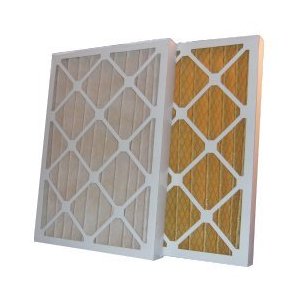 Your home is supposed to be your refuge, the place where you can be the most comfortable. For allergy sufferers, the indoors provide more than that: they offer relief.
Your home is supposed to be your refuge, the place where you can be the most comfortable. For allergy sufferers, the indoors provide more than that: they offer relief.
Allergens can have a strong effect on people. Those suffering from allergy symptoms often experience respiratory issues similar to asthma in addition to a runny nose and eye sensitivity. Allergies often reach their peak during spring, causing sufferers to dread this time of year. However, what most homeowners don’t know is that your HVAC system is your first line of defense from allergens in your home.
To an average person, the flowers that come with spring are a thing of beauty. For allergy sufferers, they are a source of suffering. What your HVAC does, in addition to temperature control, is provide a shield preventing the pollen from outside entering your home.
Also having a strong presence during spring is dust. This isn’t the dust you get in your home from not cleaning (although that isn’t great for allergies either). This is dust that is floating in the air outside. Having a clean HVAC filter will prevent dust from even entering your home. However, the HVAC isn’t going to take care of that dust on your bookcase too.
The damp, moist climate that comes with spring means mold has a better chance than ever to appear in your home. Many homeowners attempt to combat this problem with dehumidifiers, but a clean HVAC filter will stop airborne mold particles from settling in your home too. If you clean and replace your HVAC filter as needed, there is no need to purchase a dehumidifier to prevent or treat mold.
While most of us think that spring cleaning is a good step to prevent allergens such as dust and mold, the products you use to do it can be just as bad. Formaldehyde is in a number of different household cleaning products, and can easily move through the air too. Too much exposure will have an impact on anyone, but even trace amounts can affect allergy sufferers. A clean HVAC filter will remove the airborne formaldehyde from your home, providing much needed relief to allergy sufferers.
As previously stated, the key to preventing any of these allergens from remaining in your home is a clean HVAC filter. Depending on your HVAC type, the filters should be replaced every three to six months, with cleaning done intermittently in the months between. If you need to have your HVAC filter replaced, or are considering a new unit all together, give us a call at (770) 913–6412 and we’ll be happy to give a helping hand.

